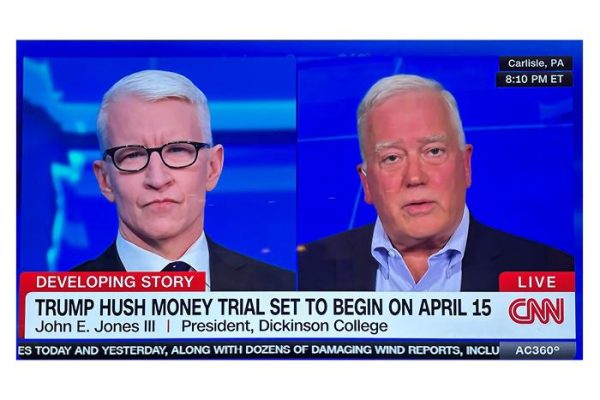Educational Studies Cuts Teaching Certification Program
Educational studies students of the class of 2017 will be the last to graduate with the option to complete their official Pennsylvania teacher certification through Dickinson College.
In an effort to become more interdisciplinary and to alleviate students’ required course load, the educational studies department made the decision to end the certification program at Dickinson.
“Our minor had so many required courses… it was basically a double major,” explained Elizabeth Lewis, educational studies department chair and associate professor of education. Despite this, she says, “We never were a major ever… we were literally only a minor with certification.”
The education studies minor is now offered as a major as well. The teacher certification previously offered at Dickinson applied only to those who wish to teach in the state.
“It wasn’t a sudden decision,” says Lewis, who explains that preliminary discussions exploring ways to modify the education studies minor were circulating even eight years ago, when Lewis first came to the college.
The change is partly in response to the challenges involved in accommodating state mandates for institutions that offer the certification program.
“When the Pennsylvania Department of Education would come out with mandates… we had to take long hard look at… how we would be able to accommodate those [mandates],” explains Lewis. She says that the Education Studies department had to add courses and field hours to “what was already a robust minor,” which created a “very regimented process.”
“From our perspective, it certainly is a positive thing,” for the state mandates to be required, says Lewis. However, “it was challenging, to say the very least, to be adding to what our students were required to complete.”
In addition, says Lewis, the department often had to hire “a pretty high number of adjunct professors to teach courses that were specific to content areas [which] were not our areas of expertise.”
Educational studies major Dori Auslander ’19 says that for “someone like me who has known since they were little that they want to be a teacher, [the elimination of the certification program] was a little harder at first to understand,” because now she has to work to get her master’s degree at the same time as her teacher certification. However, Auslander says that eventually she was “able to find that [the change] is kind of an advantage to me” in that she now can take more diverse classes that relate indirectly to education.
Educational studies major Addie Downs ’19 says that though “it sucks having to spend the money [to go to grad school]… The only thing I’ve heard people say is that… it’s kind of a bummer. But I don’t think people are mad, it’s just an unfortunate circumstance,” she amended.
“[The original] model was not a true interdisciplinary collaboration,” says Lewis, “meaning that we could not also contribute to our colleagues across campus in academic and pedagogical ways that now. With the redesigned program, we can.”
Educational studies major Phuong Uyen “Winnie” Le ’19 says that in general, the change “does not affect my life that much. On the same note,” she continues, “I’m actually glad they switched the certificate to the major because the major certainly has a broader perspective… I personally think the major leaves more room for consideration and thought regarding future professional prospects or higher education.”
Lewis says that that she is “pleased that [the current program] is going in the direction that it is.” She says she hopes that’s how the current 44 majors and 35 minors feel as well.



